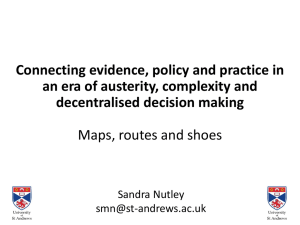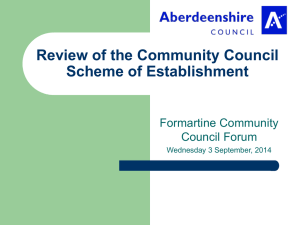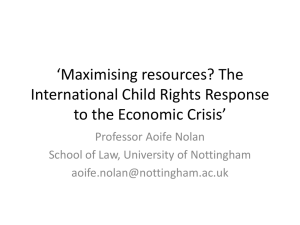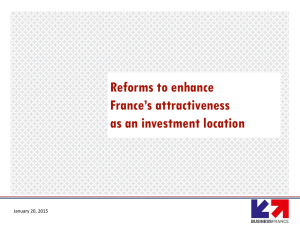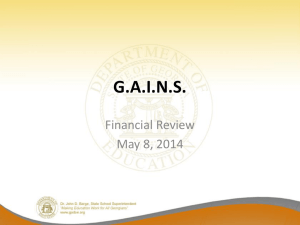Rob Whiteman
advertisement
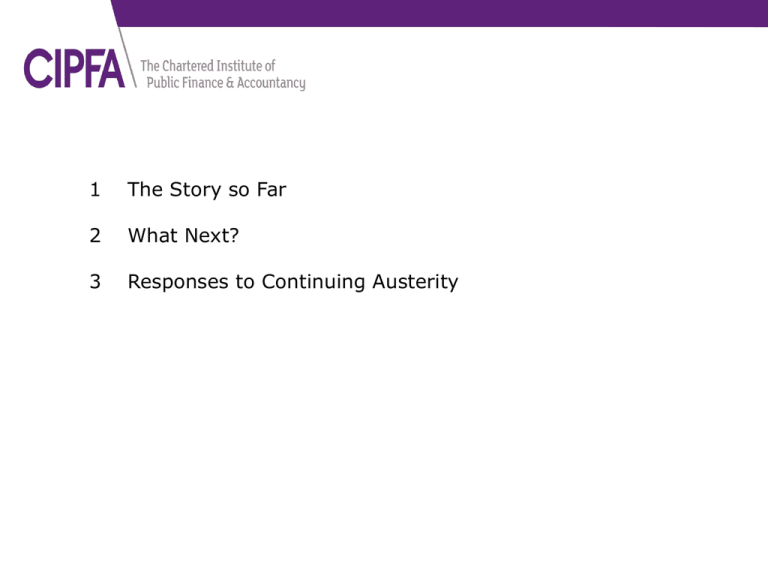
1 The Story so Far 2 What Next? 3 Responses to Continuing Austerity The Story So Far - 2014/15 Budgets Road maintenance budgets are falling, along with park and footpath maintenance, and street lighting Planning and economic development budgets are reducing Libraries, leisure services, arts centres and museums are closing and reducing their hours and staffing Youth clubs are closing and reducing to fewer sites Regulatory services that local people rely on for protection including environmental health and trading standards are reducing staff Non-critical care services, including day care, respite care and children’s centres are closing The Story So Far - Council of Europe • The ability of councils to provide "essential public services, quality health and social care and effective and adequate community services and facilities is under huge pressure following austerity measures • Recommends devolution of powers to councils as "the ability of local authorities to discharge their responsibilities sometimes appears to be highly restricted by central government" • Despite significant funding reductions themselves, councils in Wales and Scotland are "better off financially than their English counterparts" • A diversified base of local revenue is an "urgent necessity" with council tax "limited by central or devolved governments, due to the referendum obligation" while "all rates are decided by government and funding is still dominated by central government grants" The Story So Far - Council Tax Support and Welfare Reform 71 per cent of the 326 local authorities have introduced schemes with minimum payments for working-age claimants from 5 per cent to 33 per cent of a Council Tax bill 73 per cent of District Councils said that they had passed some or all of the reductions 42 per cent of district councils have set up discretionary hardship funds to help reduce the financial impact on some individual claimants 90 per cent of London, metropolitan and unitary councils passed all or some of the reductions on to claimants Transferring risks and costs to local authorities, by localising Council Tax support, adds to the broader financial challenges for local authorities. DWP/CLG have not yet quantified the potential financial impacts of the government’s welfare reforms, which could lead to increased demand for local authority services What Next? - Spending in 2015/16 and beyond As part of continuing austerity programme the Chancellor has announced further spending cuts in 2015/16 Cumulative cut in DEL of around 10.3% over 5 years Cuts in 2015/16 in line with SR 2010 departmental priorities Protection for some (Health, Education and International Development) means deep cuts for others CLG and FCO over 50% cut to DEL by 2015/16 Austerity likely to last well beyond 2015/16 Assuming no tax increases or cuts to AME would mean further cuts to DEL in 2016/17 & 2017/18 IFS estimate that in this scenario would mean another likely 7.9% cut from DEL Responses to Continued Austerity – Collaboration and Shared Services Back Office is a well trodden path Scope for increased front line collaboration and sharing, examples include Police with the Home Office looking at Fire and Police mergers Collaboration providing challenges for finance Finance staff in shared service arrangements Role and responsibility of CFO Accounting for Collaboration CIPFA to update work on Sharing the Gain Review of the Role of the CFO in Local Government document Responses to Continued Austerity – Local Spending Key to real long term savings is working across the public sector especially on the prevention agenda Issues about joining up budgets and the misalignment of investment and savings Greater Manchester City Deal for the first time involves access to some benefits expenditure Prize is there for the taking but there is no simple answer Working group set up to propose guide to mapping local expenditure Responses to Continued Austerity – Local Government Finance Commission Continued problem of political interference in local government funding mechanisms Current system rewards growth only at the expense of less well performing local authorities Need for transparency and openness in resource distribution process Need for independent comment and advice to government on the overall adequacy of the settlement for local government Local Government Commission set up by CIPFA and LGA Independent commissioners have been appointed with dedicated secretariat support form both organisations Will report during 2014 on recommendations for reform of local government funding system

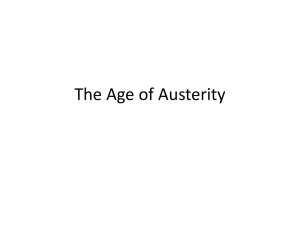
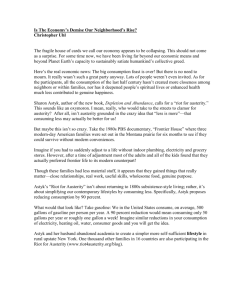


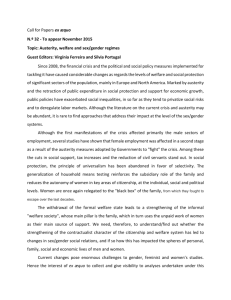
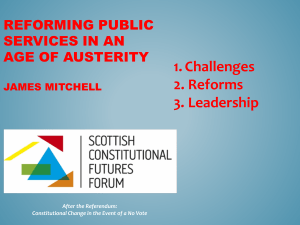
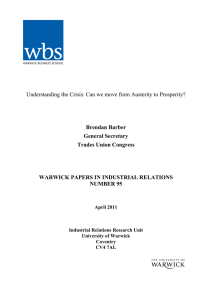
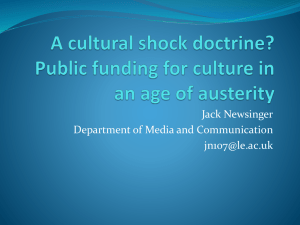
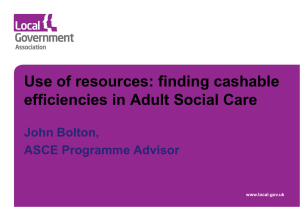
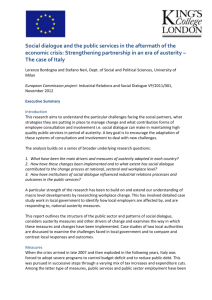

![Call For Papers [1] - University of Kent](http://s3.studylib.net/store/data/006833873_1-8bb8178a09089a6f24cf8d81966e31d4-300x300.png)



